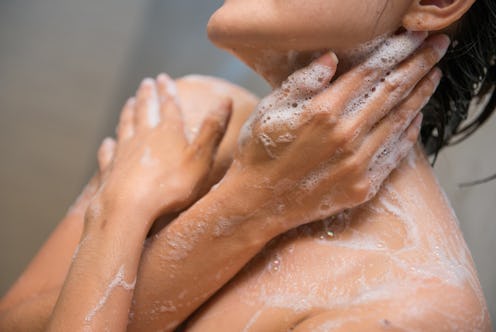Fashion
Stop Using Products With Microbeads

If you're a subscriber to the "the harder you scrub, the more it's working" phenomenon, then stop everything and listen up. Beauty products with microbeads are a serious environmental hazard, so toss those exfoliating products that contain them, pronto.
Microbeads have been all the rage in beauty products, boasting exfoliating properties and creating a scrub-like texture, but it turns out these microscopic spheres aren't safe, and aren't even proven to actually work beauty-wise. If you've been using these products, you're actually washing your face with plastic (which is pretty counterintuitive from a beauty standpoint). They are made from a material called polyethylene, which is the same thing used to make soda bottles and garbage bags. So that just sounds all kind of pretty, doesn't it? (Do you sense my sarcasm?)
Though they don't pose any danger to your face, necessarily, they do to the environment. These microbeads are so small, they can't be filtered, so they go down the drain, into our water, and then into things we eat, like fish. So by using them, we're basically letting plastic make its way into our food chain — and there's nothing healthy or sanitary about that.
There's currently a national movement that was just introduced to Congress, the Microbead-Free Waters Act of 2015, which would mandate a national ban on microplastics in personal care products. But this could take a while, so while that's up for debate, check out this handy list of companies who have vowed to stop using microplastics in their products:
- Johnson & Johnson
- Avon
- Target Corporation
- Crest
- Nature Cosmetics
- Oral B
- The Body Shop
- Colgate-Palmolive
- Albert Heijn
- Beiersdorf
- DM
- Etos
- HEMA
- Henkel
- IKEA
- LUSH
- L' Oréal
- NBTY
- P&G
- Unilever
- Remark Group
- Rituals
- Santesa
- Dr. Van der Hoog
- Trekpleister
- TC Troll Cosmetics
- De Tuinen
Give this video by The Story of Stuff a watch to learn more.
Images: Fotolia; YouTube